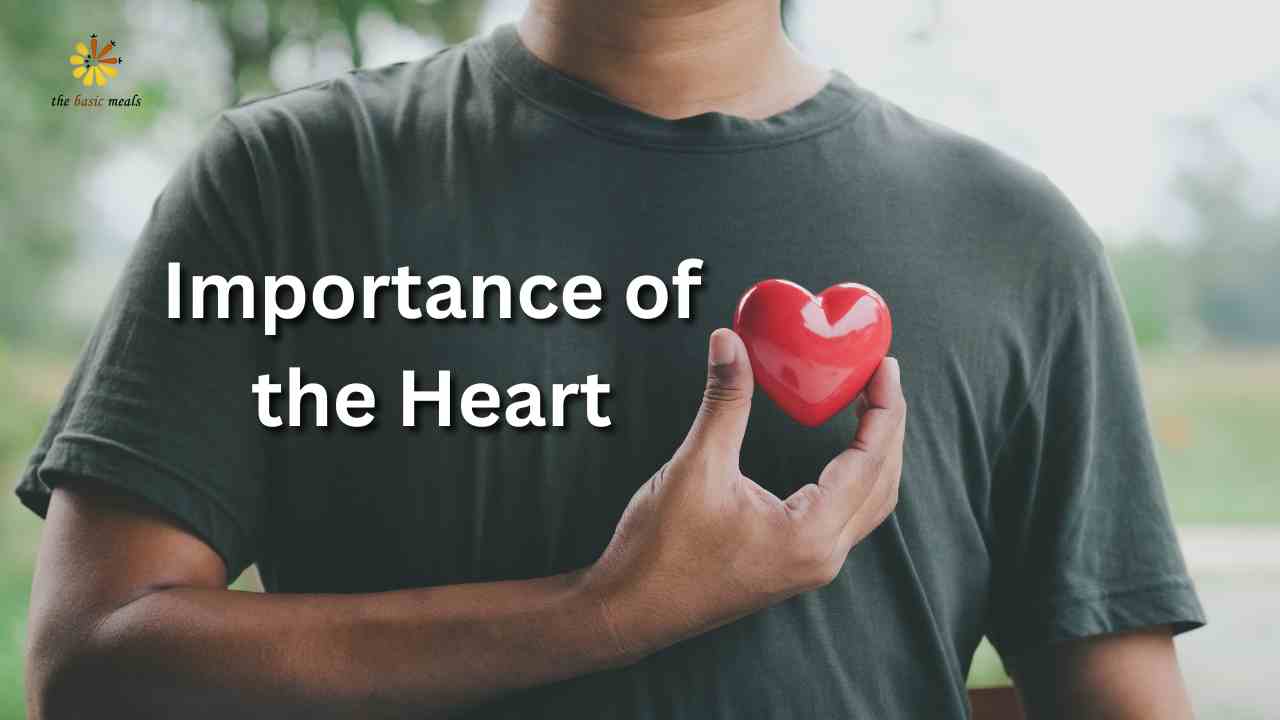
Importance, Functions & Requirement of the Heart
Ever wondered how we live? It's a simple answer – as long as our heart keeps beating. The heart, alongside the brain, stands as a lifeline. If either stops permanently, we bid adieu to this journey called life. It is important to understand the importance, functions and requirements of heart for healthy living.
Recognizing the heart's significance, let's delve into vital information on heart health – a subject crucial for all. Our heart, tirelessly pumping blood, plays a central role in our well-being. Understanding its functions and needs is key to a healthier life.
The heart, a ceaseless performer, pumps oxygen and nutrient-rich blood to every nook of our body. A steady blood flow keeps our organs ticking, removing waste products like a diligent housekeeper. Even at rest, the heart works tirelessly. During stress or exercise, it steps up its rhythm to meet the body's heightened needs.
Understanding the heart lays the groundwork for a healthy life. Simple lifestyle tweaks can make a big impact. Knowing the heart's pumping action, nutritional requirements, and exercise needs empowers us to make informed choices. Let's explore the Importance functions and requirements of heart to keep our vital organ in top-notch condition.
Table Of Content
The Heart's Pumping Mechanism
The heart, with its four chambers, orchestrates a dance of muscle contractions, pumping life through our veins. This rhythmic symphony delivers oxygen and nutrients, sweeping away waste products.
Maintaining a robust heart pump is crucial. Cardiac output, the volume of blood pumped per minute, depends on heart rate and stroke volume. A healthy lifestyle, embracing physical activity, weight management, and heart-friendly habits, preserves this vital function. Any alterations may require medical attention.
Blood Circulation
Good circulation is the pulse of well-being. Oxygen-rich blood powers our cells, ensuring every part functions optimally. Poor circulation leads to fatigue, trouble concentrating, and even organ damage. A robust heart and flexible blood vessels, fostered by regular activity, stress management, and a nutritious diet, are essential for good blood flow.
Nutritional Needs
A balanced diet is the heart's best companion. Let's look at key nutrients crucial for heart health:
- Macronutrients – A healthy balance is essential. Carbohydrates, often labeled the enemy, are vital. Opt for complex carbohydrates found in Indian staples, providing energy, fiber, and essential vitamins and minerals. Fats, unfairly blamed, are crucial. Embrace Omega-3 fatty acids found in fish, nuts, and non-refined plant oils. Protein, a heart ally, requires balance for hypertrophy prevention.
- Micronutrients – Antioxidants (Vitamin C, E, beta carotene), potassium-rich foods (bananas, tomatoes), and fiber sources (oats, beans) form the heart's nutrient arsenal. Embrace local fruits, vegetables, and whole grains for a heart-healthy diet.
Physical Activity
Regular activity is the heartbeat of heart health. Embrace heart-friendly exercises with an Indian touch:
- Walking: A daily stroll to keep your heart strong.
- Dance: Classical dance for a fun workout.
- Yoga: Blend tradition with fitness for flexibility, breathing, and stress reduction.
- Outdoor games: Cricket, anyone? Engage in games that elevate your heart rate.
Do what you love; consistency is key. Before starting, consult your doctor, especially if heart conditions exist. Make physical activity a habit for a hearty life.
Stress Management
Stress impacts heart health. Our bodies release cortisol and adrenaline, causing havoc. Manage stress the Indian way:
- Exercise: A brisk walk or yoga session relieves tension.
- Meditation: Embrace mindfulness, deep breathing, or yoga to activate your body's relaxation response.
- Sound Sleep: Ensure 7-9 hours of quality sleep, a cornerstone for mood and stress management.
- Social Connections: Spend time with loved ones or the therapeutic company of children or pets.
- Counseling: Seek help during life traumas.
A little act of kindness, as simple as warming the security guard's meal, can bring joy to your heart.
Risk Factors
Understanding risks is key to heart protection. Factors like smoking, obesity, inactivity, high cholesterol, hypertension, and secondary heart issues need attention. Embrace lifestyle changes – eat healthy, exercise, quit smoking, and manage stress. Regular checkups and screenings are your armor against heart troubles. The understanding of importance, functions and requirements of heart help us to control risk factors.
Warning Signs
Protect your heart by recognizing warning signs early:
- Chest pain: Tightness, pressure, or pain during activity or at rest.
- Shortness of breath: A signal of potential heart issues.
- Dizziness or lightheadedness: Indications of underlying cardiovascular problems.
- Palpitations: Fluttering heartbeats or irregular patterns.
- Swelling in extremities: A sign of inefficient pumping.
- Fatigue and weakness: Unusual tiredness or reduced exercise ability.
- Nausea and vomiting: Associated with heart attack or failure.
Seek immediate medical attention for serious symptoms. Early detection is the key to preserving heart health.
Conclusion
In essence, the heart, our life-pump, deserves our attention. Nourish it with a diet rich in local flavors, embrace heart-friendly activities rooted in tradition, and manage stress the Indian way. Make lifestyle changes, get regular checkups, and listen to your heart's whispers. A healthy heart supports a life well-lived. Let's show our hearts some love!
Contact us for detailed counseling sessions for your heart health.

